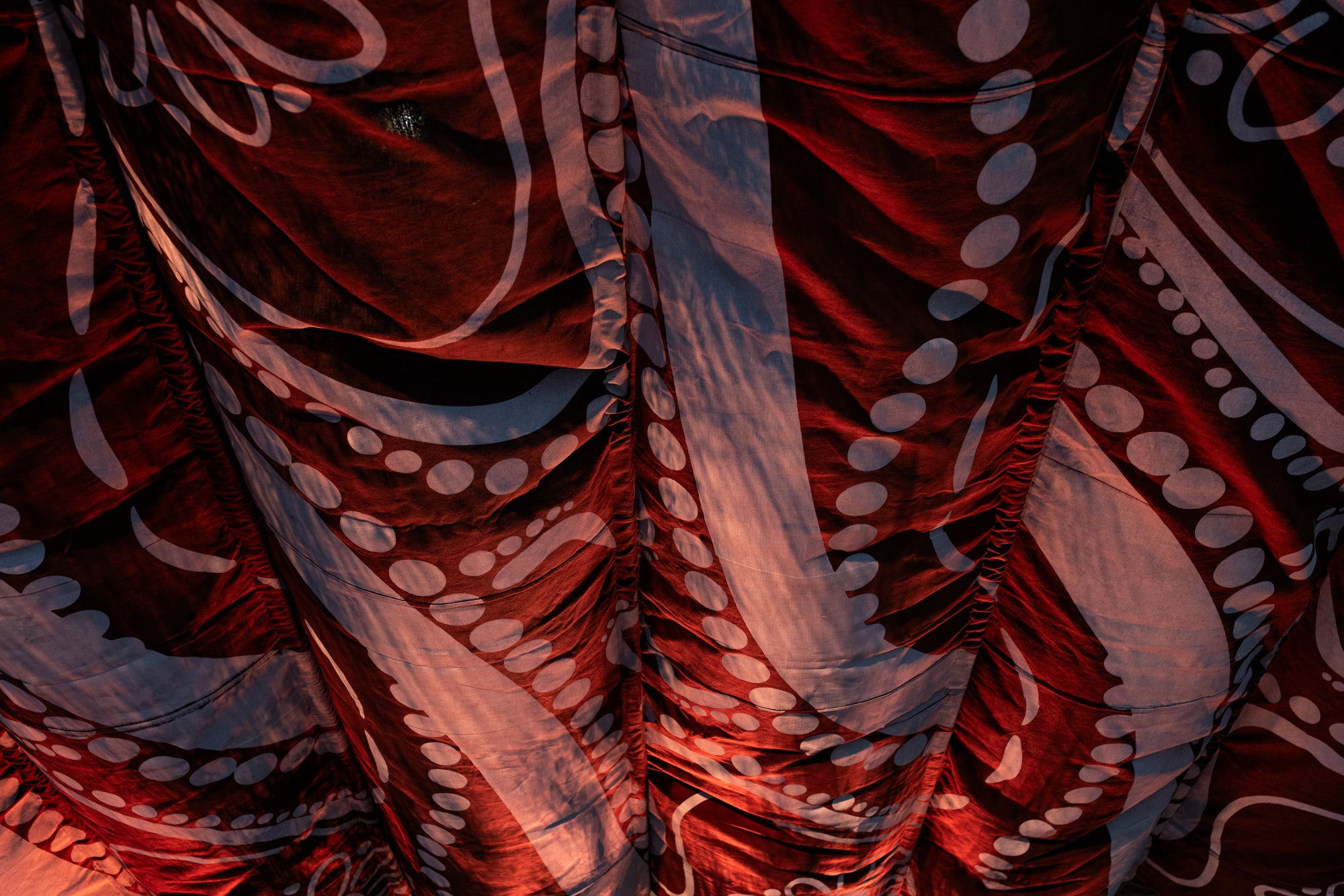We aim to create soft furnishings and textiles that are functional and high performing whilst remaining environmentally and socially responsible.
By implementing upstream innovation to design out waste from the start, Weft focuses on sourcing sustainable materials, supporting local production, and promoting recycling.
Weft takes a holistic approach to circularity, contributing to the achievement of the United Nations Sustainable Development Goals.
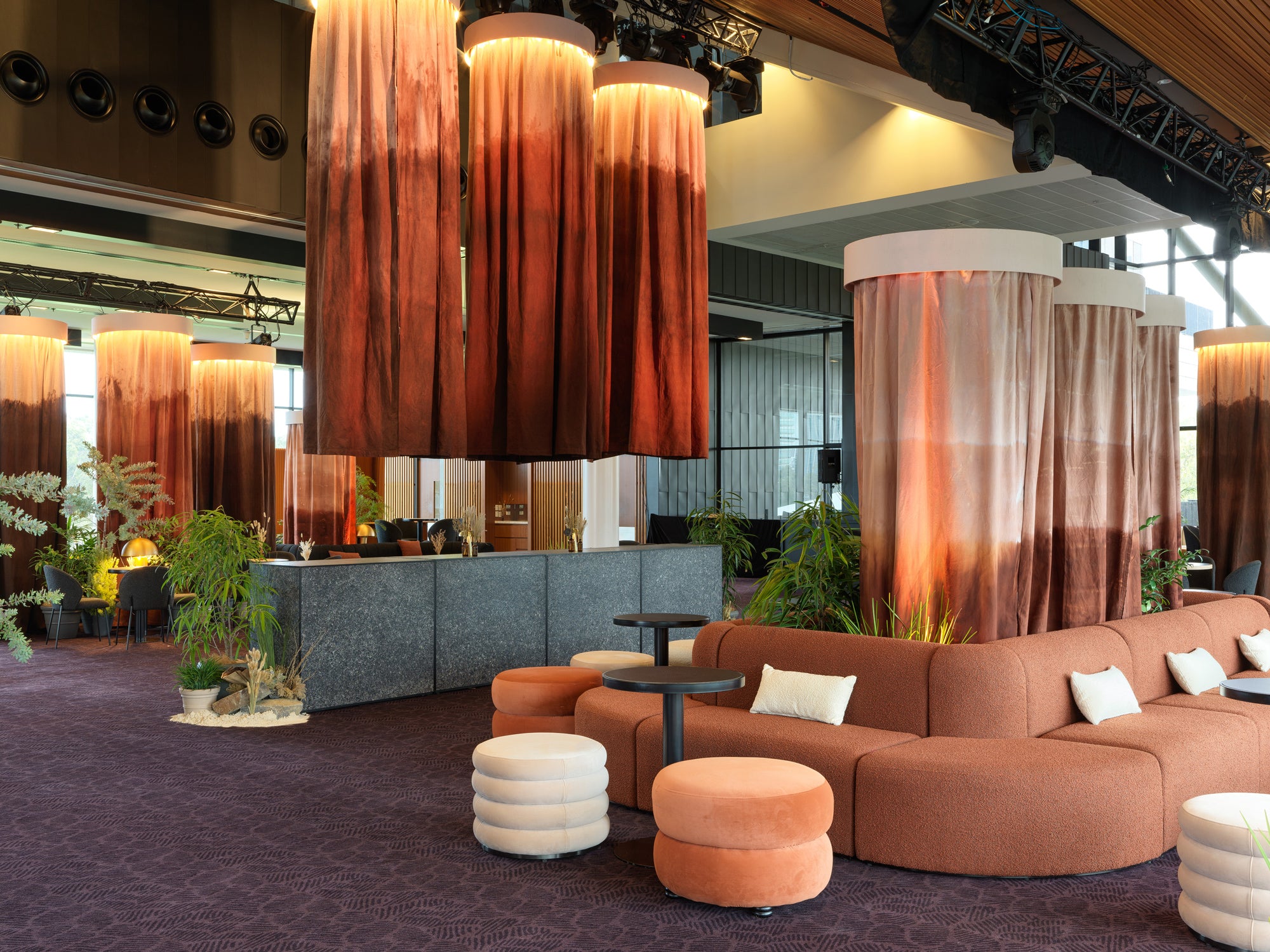
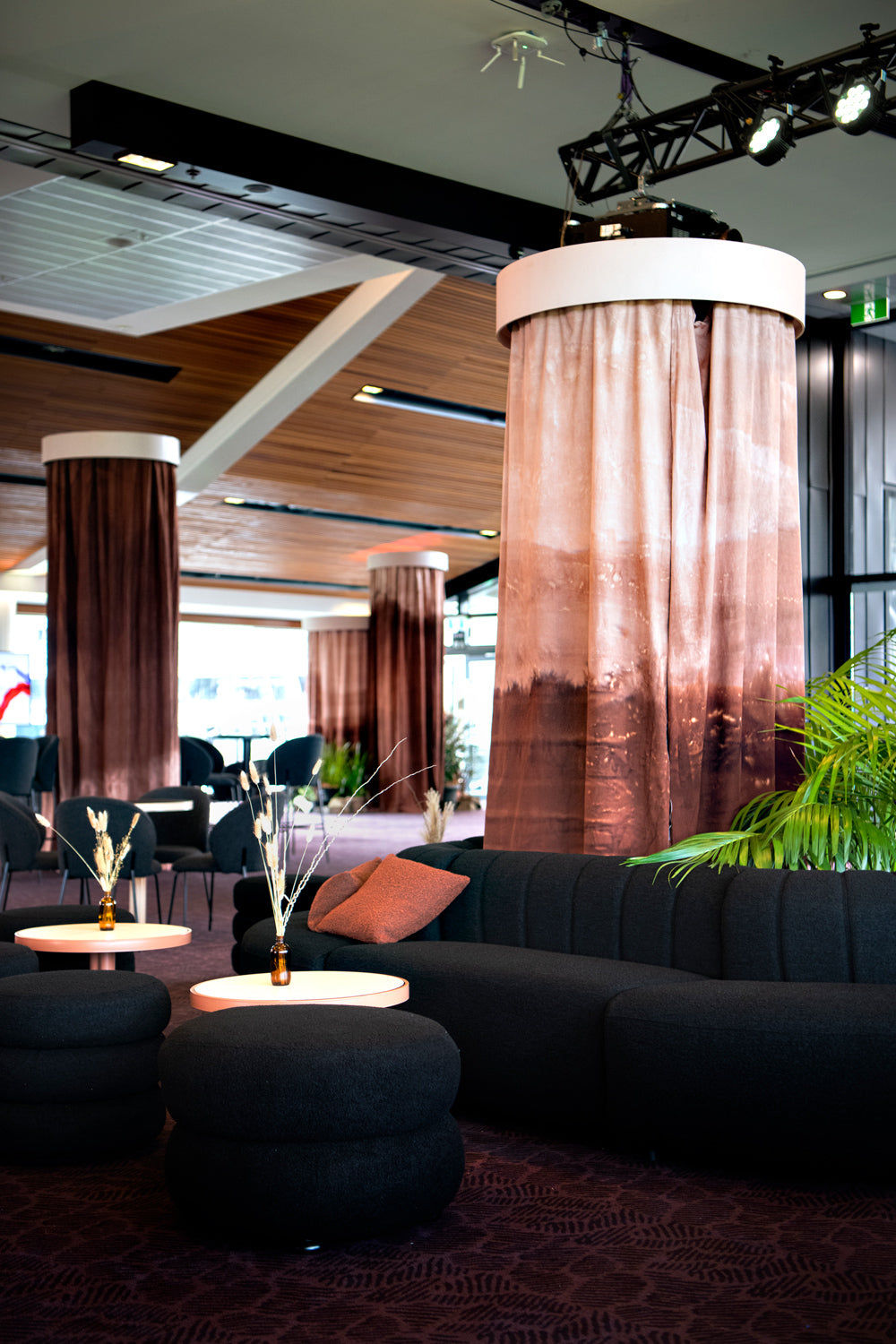
Circular Design
Weft’s textile designs incorporate circular and regenerative design principles; designing out waste, keeping materials and products in use, and regenerating natural systems to create customized designs suited to our clients' specific requirements and needs.
In sourcing textiles that are organically certified, recycled, and mono fibers, We promote environmentally responsible practices that provide higher quality and environmentally conscious materials for our textiles applications.
Using recycled materials in the production process further minimizes the need for new resources and reduces waste. By giving new life to materials that would otherwise end up in a landfill, Weft actively contributes to the circular economy.
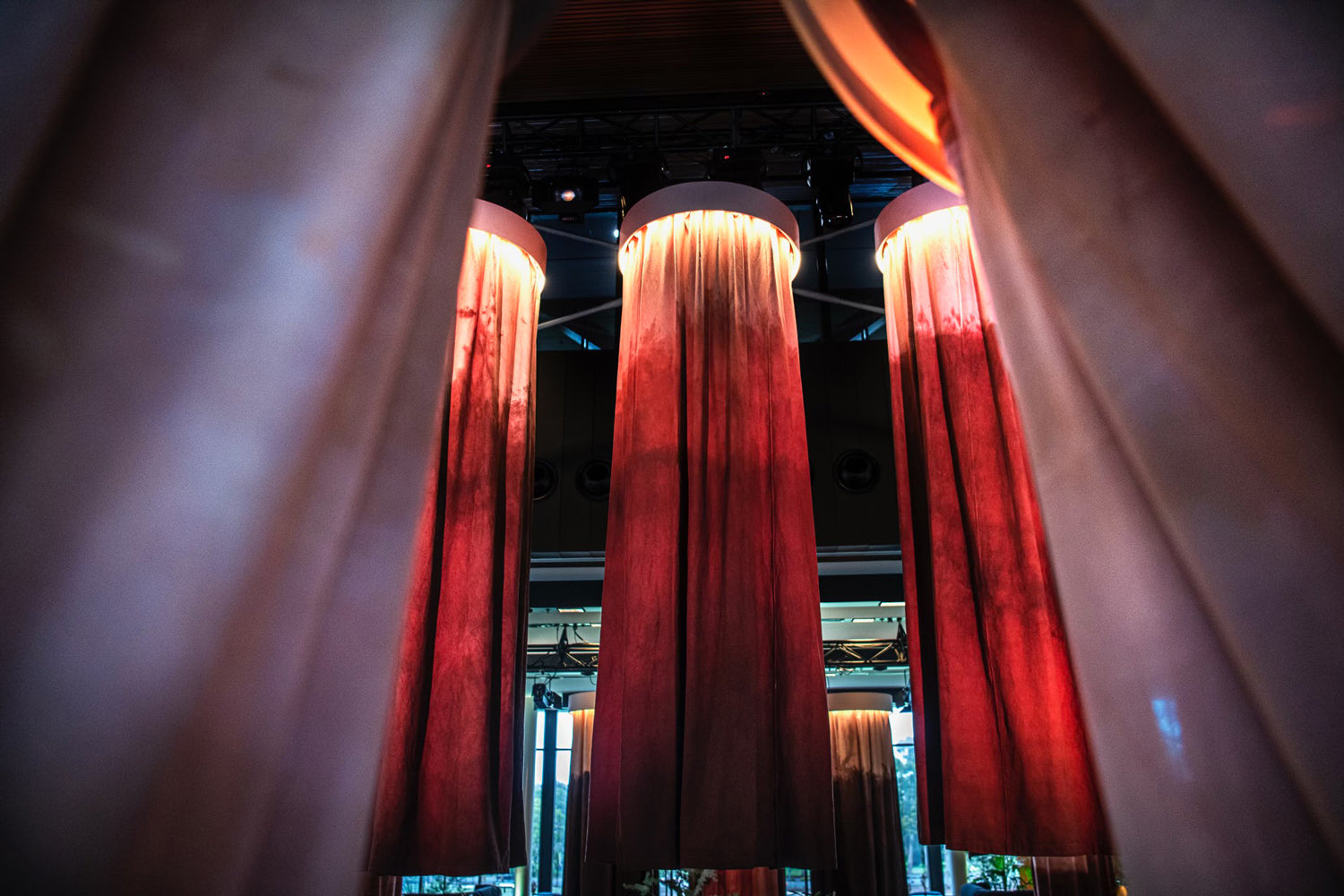
Local Manufacturing
Supporting local and ethical production and manufacturing is another pillar of Weft's circular design principles. By working with local producers and makers, Weft promotes sustainability through reduced transportation, strengthening local economies, and ensuring better labor practices.
With over 10 years of working with local makers, we have proudly built long-lasting relationships with our suppliers and makers to establish mutually beneficial agreements to support the supply chain and the environment within the local manufacturing sector.

Transparency
Transparency within our manufacturing and supply chain is something very important to Weft, and we are happy to disclose the origins of our textiles and soft furnishings, as well as any details of our local manufacturing and workrooms. For any question or queries on our supply chain, please email info@weft-textiles.com.
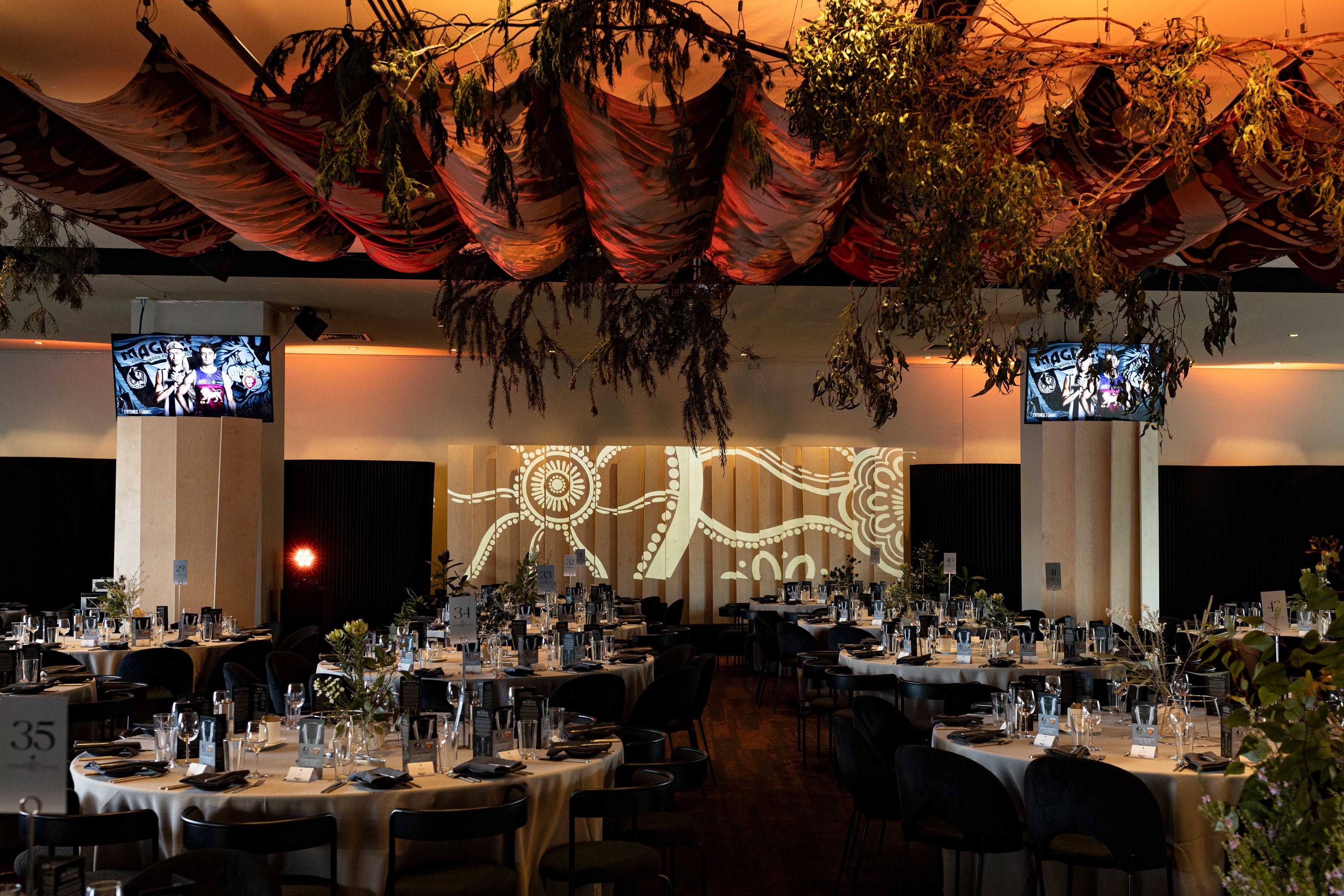
Sustainability Consultations and Reports
Weft offers sustainability consultations to create environmentally responsible textile applications suitable for events, residential, and commercial spaces, focusing on Australian-made production. In 2023, Weft began to offer sustainability reports on all custom soft furnishing projects. These reports use recommended systems maps and data to investigate Weft Textiles soft furnishings projects.
Our reports offer information on the environmental, social, and economic impacts of textile production and consumption. This includes data on energy and water usage, greenhouse gas emissions, chemical usage, waste generation, and worker welfare practices. Weft’s sustainability reports for soft furnishing projects aim to provide stakeholders with a comprehensive understanding of our sustainability practices and our commitment to reducing environmental and social impact, proposing how we, as Australia's textile sector, along with its stakeholders and all levels of government, can lead the way towards a sustainable and responsible system of production and use.
For clients interested in a report specific to their project, please email info@weft-textiles.com.
A full sustainability report of a past curtain project is available here.
FAQs
-
Weft aims to create soft furnishings that are aesthetically pleasing and functional while remaining environmentally and socially responsible. This includes implementing upstream innovation to design out waste, sourcing sustainable materials, supporting local production, and promoting recycling. Weft takes a holistic approach to circularity, contributing to the achievement of the United Nations Sustainable Development Goals.
-
Weft's textile designs incorporate circular and regenerative design principles by designing out waste, keeping materials and products in use, and regenerating natural systems to create customised designs suited to clients' specific requirements and needs.
-
Weft promotes environmentally responsible practices by sourcing textiles that are organically certified, recycled, and made from mono fibers. This provides higher quality and environmentally conscious materials for its textile applications.
-
Weft minimises waste in its production process by using 100% natural fibers and recycled materials, which reduces the need for new resources and keeps materials out of landfills. This active contribution to the circular economy gives new life to materials that would otherwise be discarded.
-
Weft supports local and ethical production and manufacturing by working with local producers and makers. This promotes sustainability through reduced transportation, strengthens local economies, and ensures better labor practices.
-
Yes, transparency within Weft's manufacturing and supply chain is important. We are happy to disclose the origins of our textiles and soft furnishings, as well as details of their local manufacturing and workrooms. For questions or queries on our supply chain, email info@weft-textiles.com.
-
Weft prioritises textile care by designing for longevity and specifying high-quality materials. We encourage our customers to follow care instructions, practice proper laundering techniques, promptly repair any damage, and store items correctly.
-
Weft offers sustainability consultations to create environmentally responsible textile applications suitable for events, residential, and commercial spaces, focusing on Australian-made production. We also offer sustainability reports on all custom soft furnishing projects, providing stakeholders with information on environmental, social, and economic impacts of the design.
-
Clients interested in a sustainability report specific to their project can email info@weft-textiles.com for more information.
-
A full sustainability report of a past curtain project is available here.
-
Weft aims to create soft furnishings that are aesthetically pleasing and functional while remaining environmentally and socially responsible. This includes implementing upstream innovation to design out waste, sourcing sustainable materials, supporting local production, and promoting recycling. Weft takes a holistic approach to circularity, contributing to the achievement of the United Nations Sustainable Development Goals.
-
Weft promotes environmentally responsible practices by sourcing textiles that are organically certified, recycled, and made from mono fibers. This provides higher quality and environmentally conscious materials for its textile applications.
-
Weft supports local and ethical production and manufacturing by working with local producers and makers. This promotes sustainability through reduced transportation, strengthens local economies, and ensures better labor practices.
-
Weft prioritises textile care by designing for longevity and specifying high-quality materials. We encourage our customers to follow care instructions, practice proper laundering techniques, promptly repair any damage, and store items correctly.
-
Clients interested in a sustainability report specific to their project can email info@weft-textiles.com for more information.
-
Weft's textile designs incorporate circular and regenerative design principles by designing out waste, keeping materials and products in use, and regenerating natural systems to create customised designs suited to clients' specific requirements and needs.
-
Weft minimises waste in its production process by using 100% natural fibers and recycled materials, which reduces the need for new resources and keeps materials out of landfills. This active contribution to the circular economy gives new life to materials that would otherwise be discarded.
-
Yes, transparency within Weft's manufacturing and supply chain is important. We are happy to disclose the origins of our textiles and soft furnishings, as well as details of their local manufacturing and workrooms. For questions or queries on our supply chain, email info@weft-textiles.com.
-
Weft offers sustainability consultations to create environmentally responsible textile applications suitable for events, residential, and commercial spaces, focusing on Australian-made production. We also offer sustainability reports on all custom soft furnishing projects, providing stakeholders with information on environmental, social, and economic impacts of the design.
-
A full sustainability report of a past curtain project is available here.
